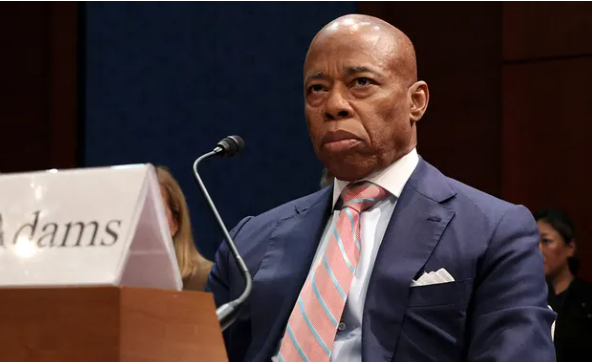
Judge Dismisses Corruption Charges Against NYC Mayor Eric Adams, Citing Political Motives

In a landmark decision that has sent shockwaves through the political landscape, U.S. District Judge Dale E. Ho of the Southern District of New York has dismissed the corruption indictment against New York City Mayor Eric Adams with prejudice, ensuring that the charges cannot be refiled. The case, which alleged that Adams solicited illegal campaign contributions and luxury travel from foreign nationals, had been a focal point of controversy in the city’s political sphere.
The indictment, brought forth under the Biden administration, accused Adams of leveraging his mayoral position for personal gain, with alleged ties to Turkish businessmen and other foreign entities. However, with the transition to a Trump-led Department of Justice, the case took an unexpected turn, as federal prosecutors moved to have the charges dropped, arguing that continued legal proceedings would impede the mayor’s ability to govern effectively.
Adams\' legal team, led by attorney Alex Spiro, celebrated the ruling as a long-overdue vindication. “From Day 1, the mayor has maintained his innocence, and now justice for Eric Adams and New Yorkers has prevailed,” Spiro stated.
The judge’s ruling, however, did not come without sharp rebuke for the DOJ’s handling of the case. In his written opinion, Judge Ho criticized the shifting political motivations behind the prosecution and dismissal, noting that dismissing the case without prejudice would have created an appearance that the mayor’s legal fate was tied to his alignment with federal immigration policies. “That appearance is inevitable, and it counsels in favor of dismissal with prejudice,” Ho wrote.
The fallout from this decision is already reverberating through the mayoral race. Former New York Governor Andrew Cuomo, who recently announced his candidacy for the 2025 mayoral election, has already amassed $1.51 million in campaign contributions, signaling a formidable challenge to Adams\' re-election bid. Political analysts predict that this legal victory, while significant, may not be enough to shield Adams from electoral scrutiny, particularly in a city still grappling with rising crime rates, economic struggles, and ongoing political infighting.
Despite the dismissal, Adams has remained relatively silent on the matter, choosing to focus instead on policy issues. At a press event addressing retail theft, he refused to take questions regarding the case, sticking to prepared remarks about crime reduction efforts in the city.
The political ramifications of this ruling extend far beyond the mayor’s office. Critics of the Trump administration argue that the DOJ’s decision to drop the case was a strategic move to gain favor with Adams, particularly given his recent decision to allow ICE operations at Rikers Island—an action perceived as aligning with the federal government’s immigration priorities.
Judge Ho’s ruling did not mince words when addressing this concern, stating, “Everything here smacks of a bargain: dismissal of the indictment in exchange for immigration policy concessions.” The assertion has fueled speculation about the extent of backroom deals influencing high-profile legal proceedings and the broader implications for the integrity of the justice system.
With New York City’s mayoral election fast approaching, Adams now faces an uphill battle, navigating the dual challenges of political survival and public trust. While his supporters hail the dismissal as proof of his innocence, his opponents see it as a testament to a justice system manipulated by political interests.
As the dust settles, one thing remains clear—Eric Adams’ fight is far from over.


